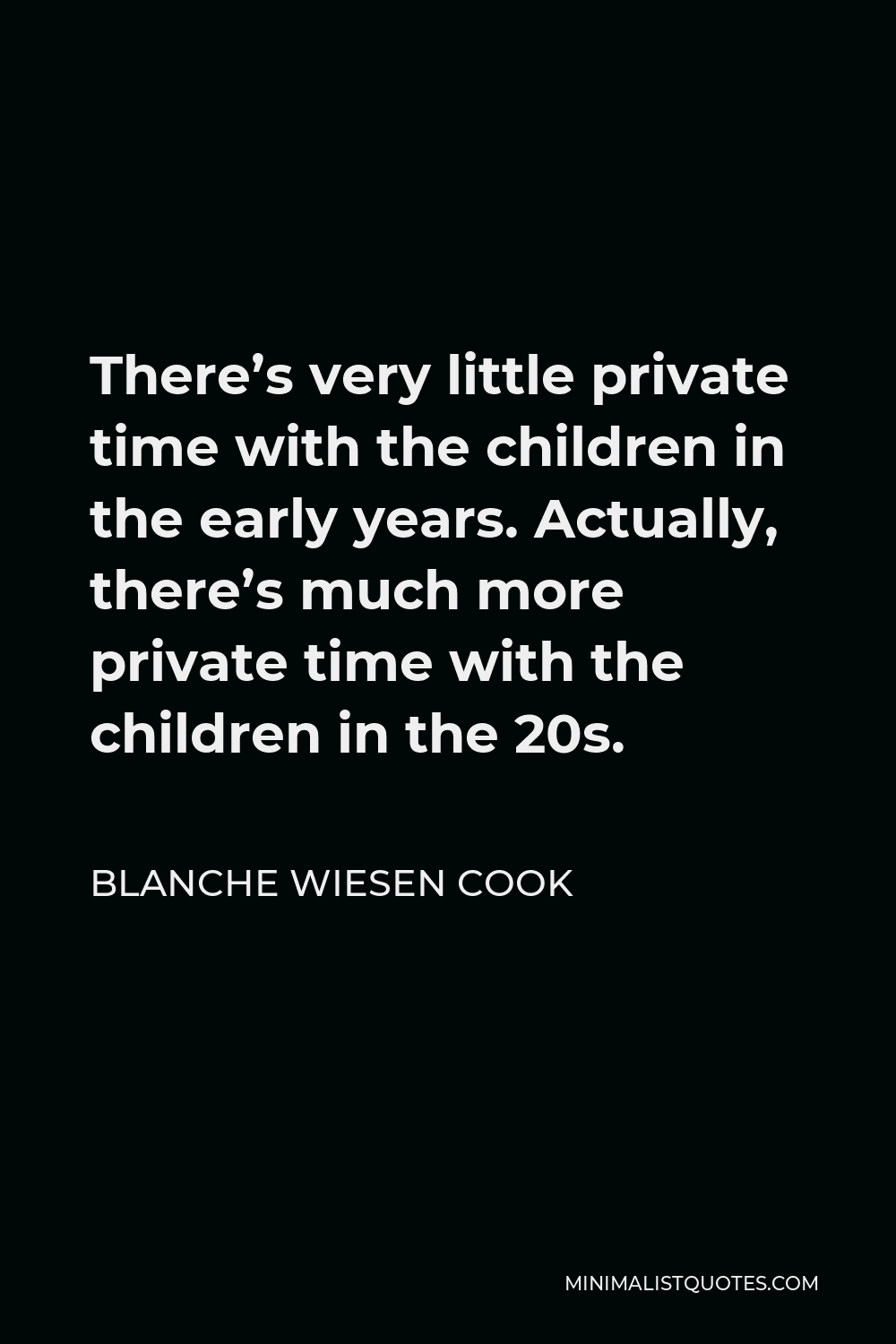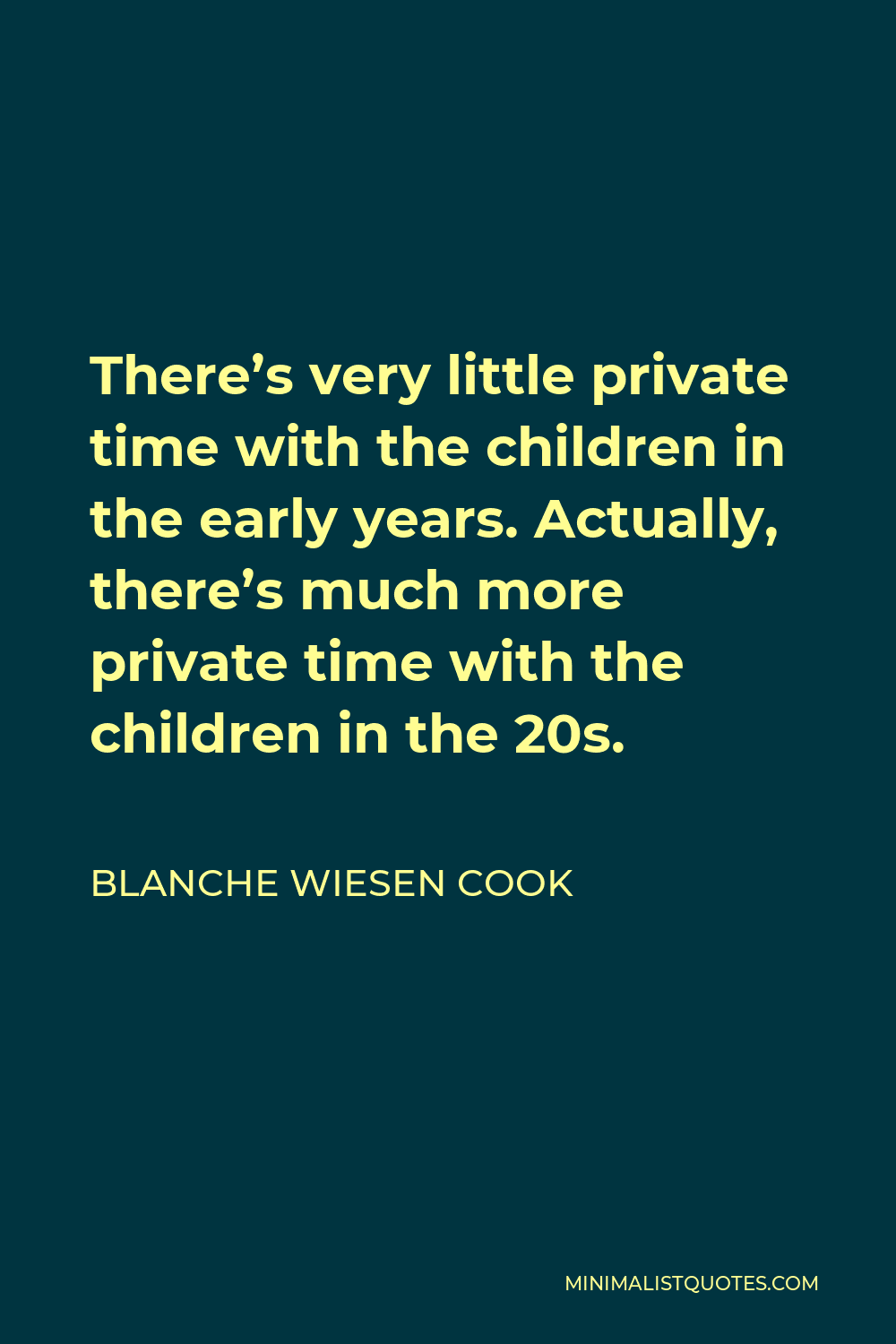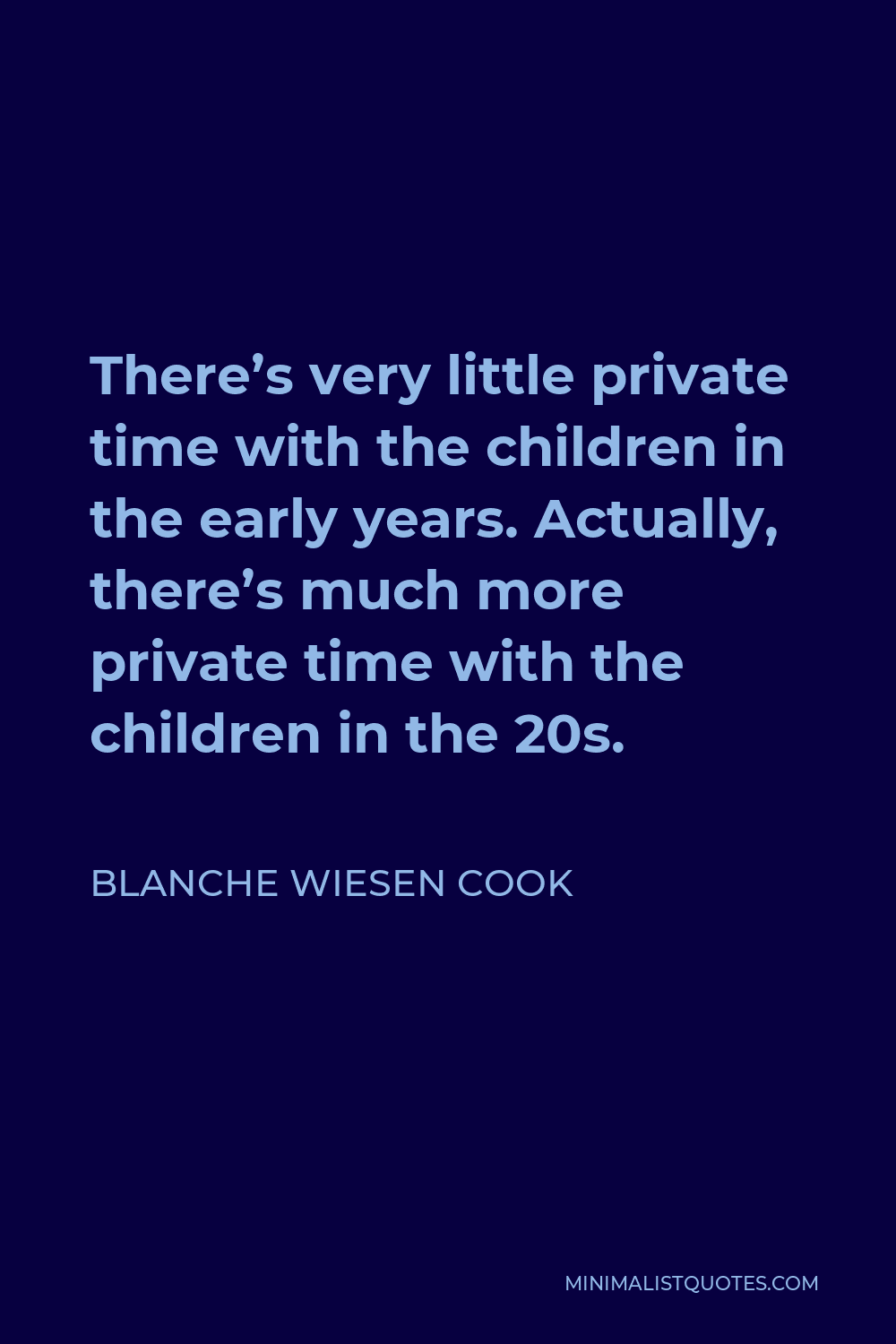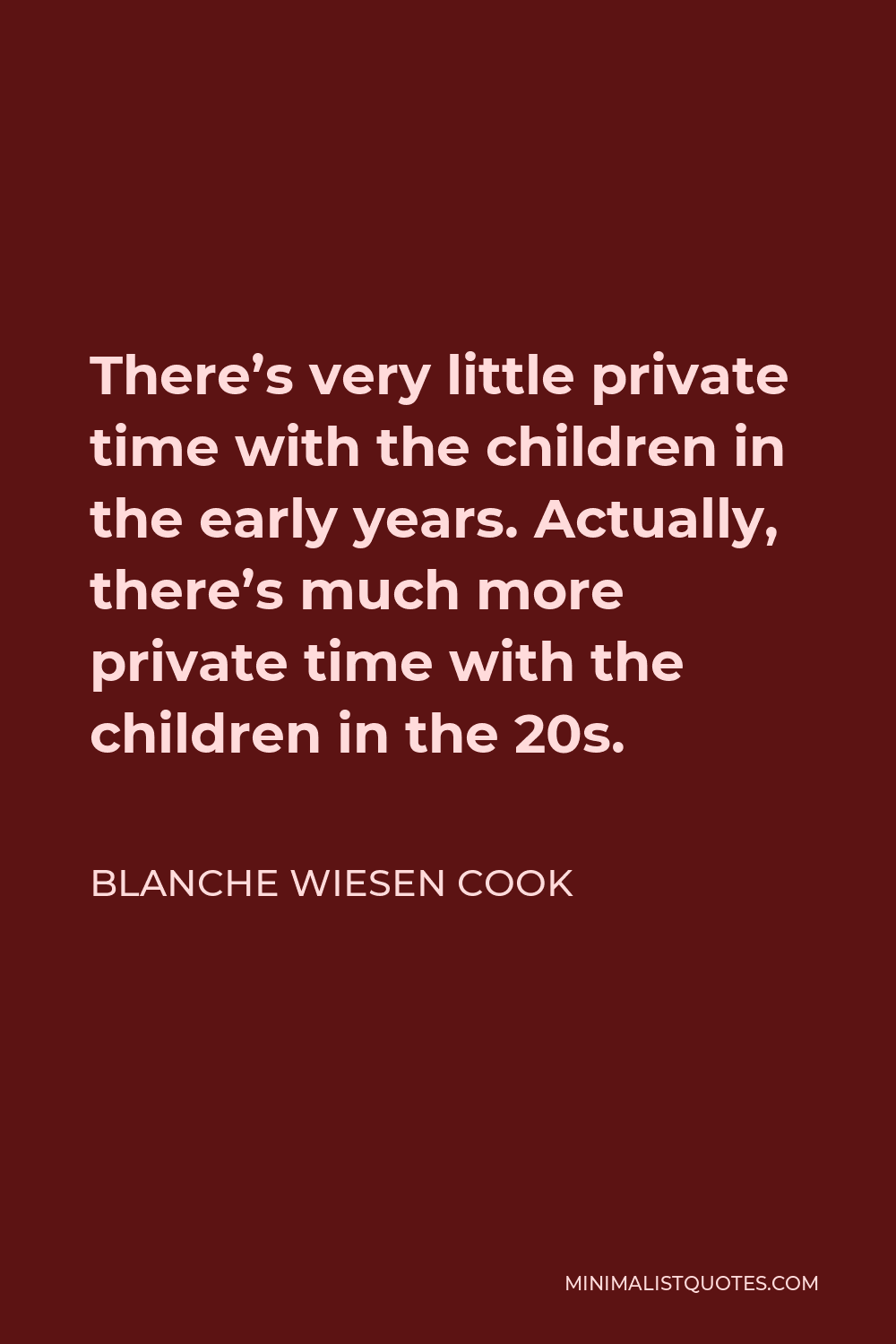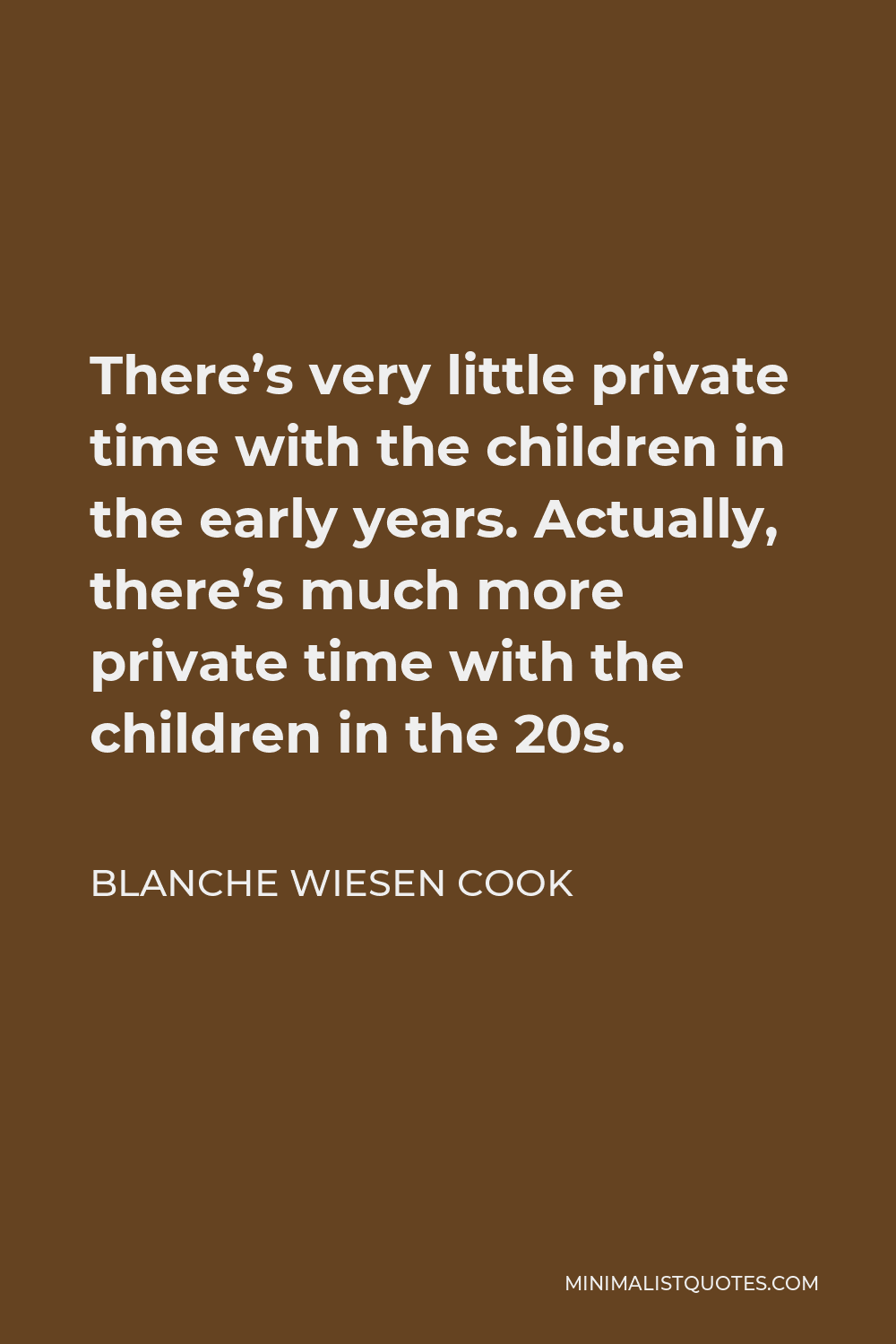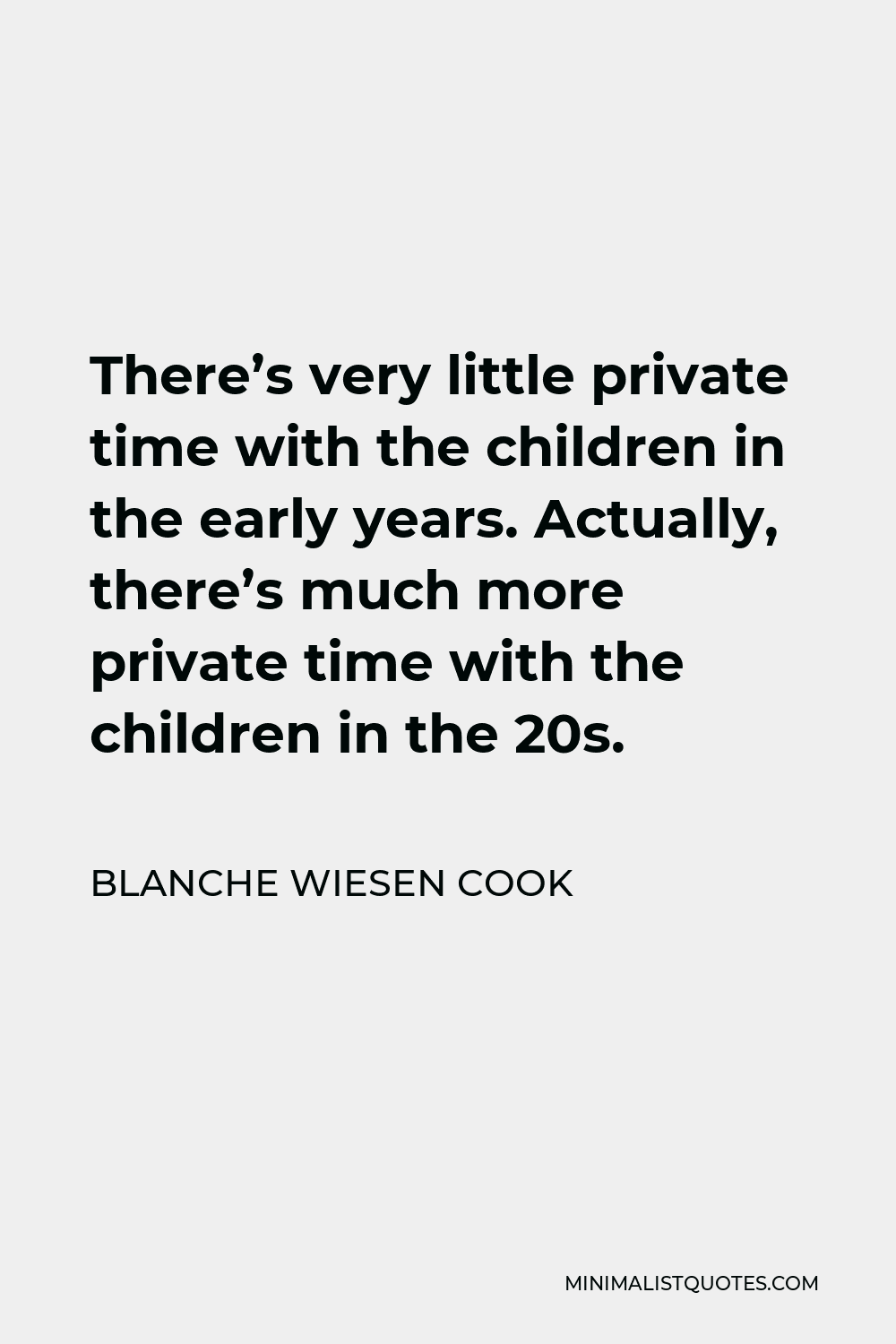I think Eleanor Roosevelt’s so popular at Allenswood because it’s the first time she is, number one, free. But it’s the first time somebody really recognizes her own leadership abilities and her own scholarly abilities.
BLANCHE WIESEN COOKThere’s very little private time with the children in the early years. Actually, there’s much more private time with the children in the 20s.
More Blanche Wiesen Cook Quotes
-





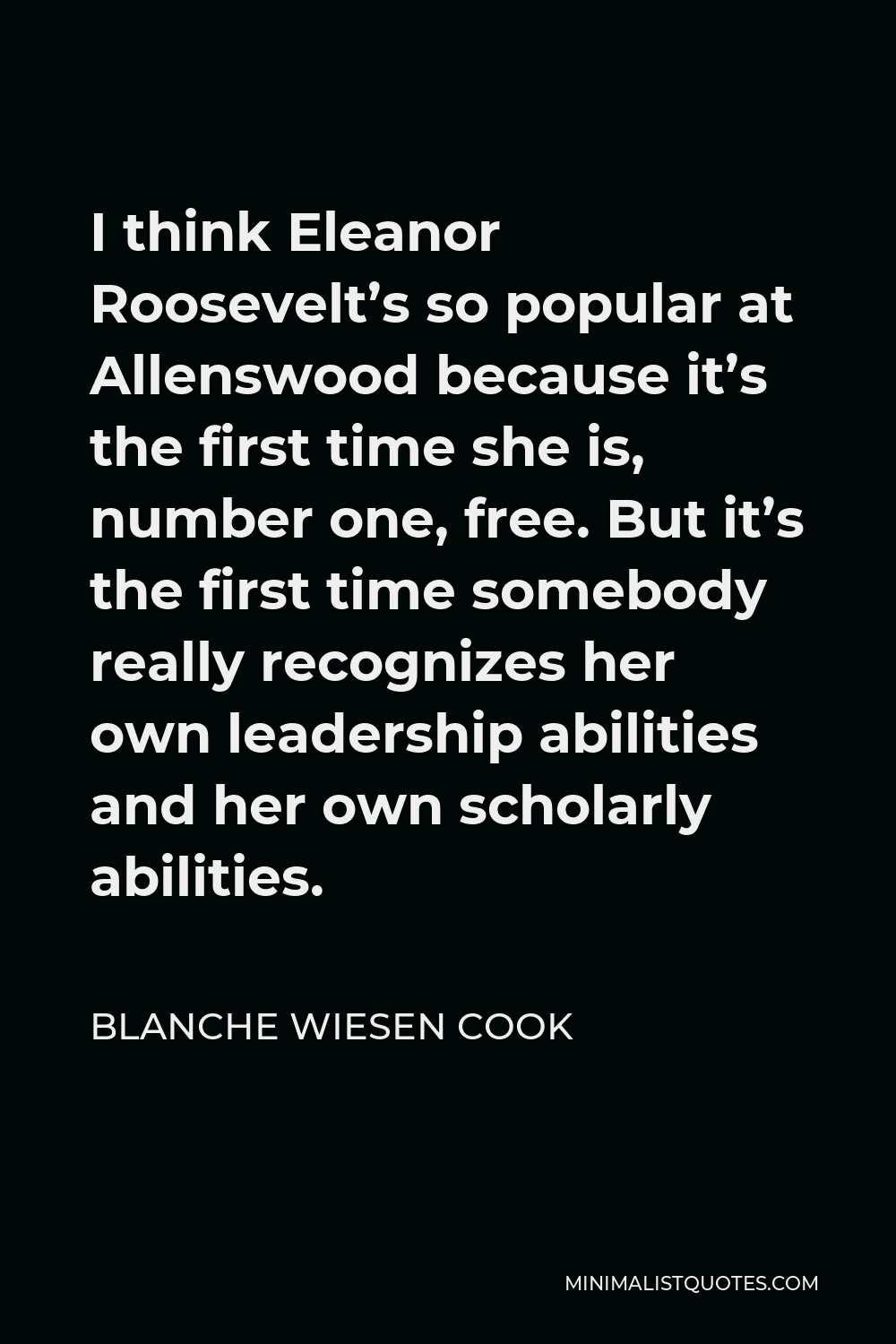
-





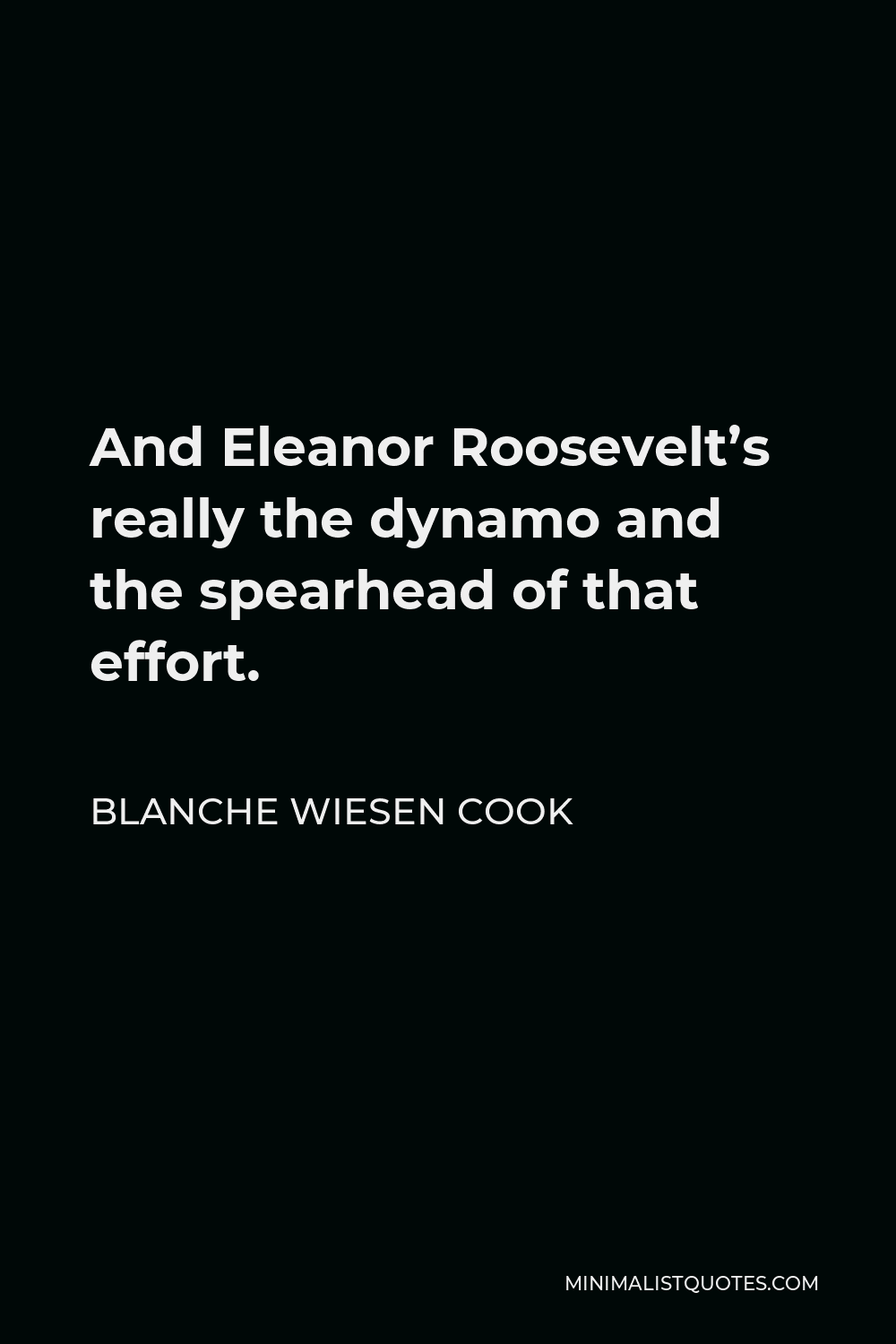
And Eleanor Roosevelt’s really the dynamo and the spearhead of that effort.
BLANCHE WIESEN COOK -





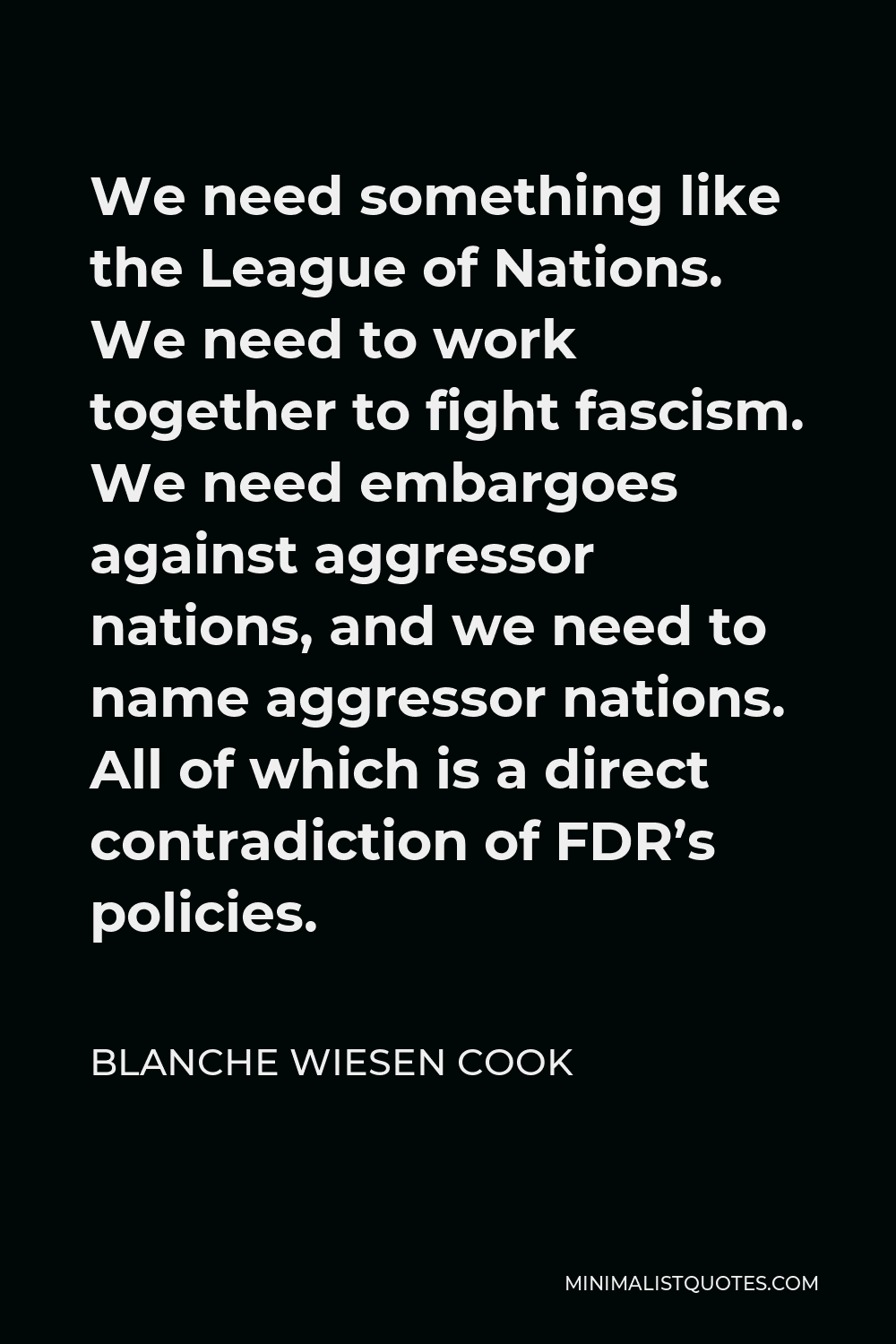
We need something like the League of Nations. We need to work together to fight fascism. We need embargoes against aggressor nations, and we need to name aggressor nations. All of which is a direct contradiction of FDR’s policies.
BLANCHE WIESEN COOK -





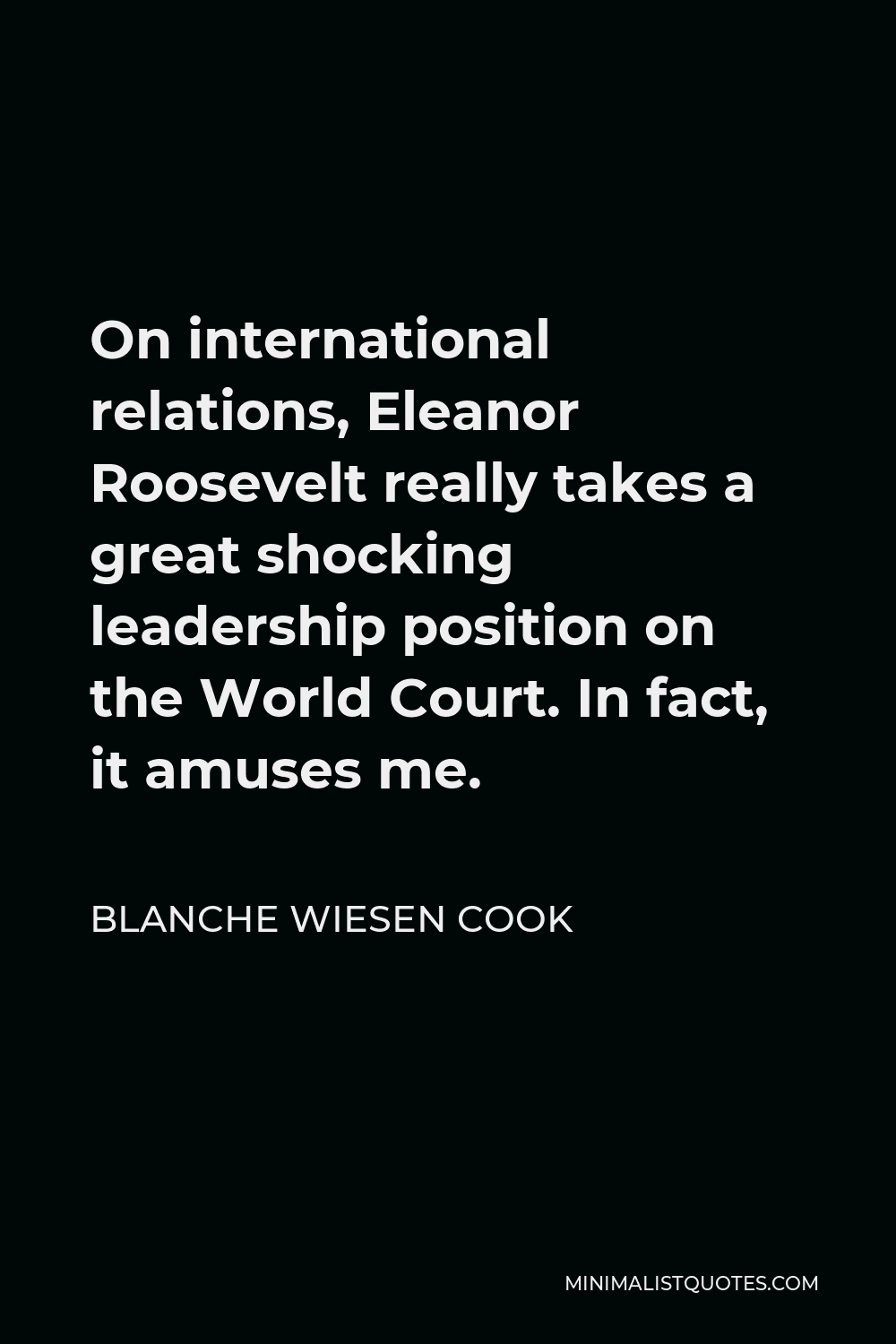
On international relations, Eleanor Roosevelt really takes a great shocking leadership position on the World Court. In fact, it amuses me.
BLANCHE WIESEN COOK -





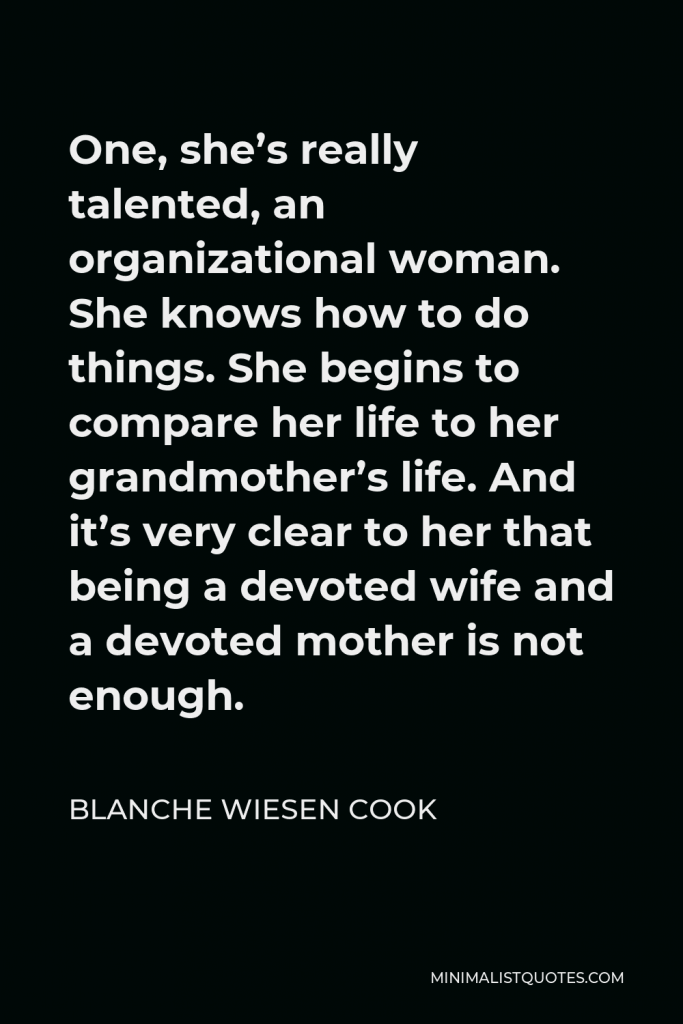

One, she’s really talented, an organizational woman. She knows how to do things. She begins to compare her life to her grandmother’s life. And it’s very clear to her that being a devoted wife and a devoted mother is not enough.
BLANCHE WIESEN COOK -





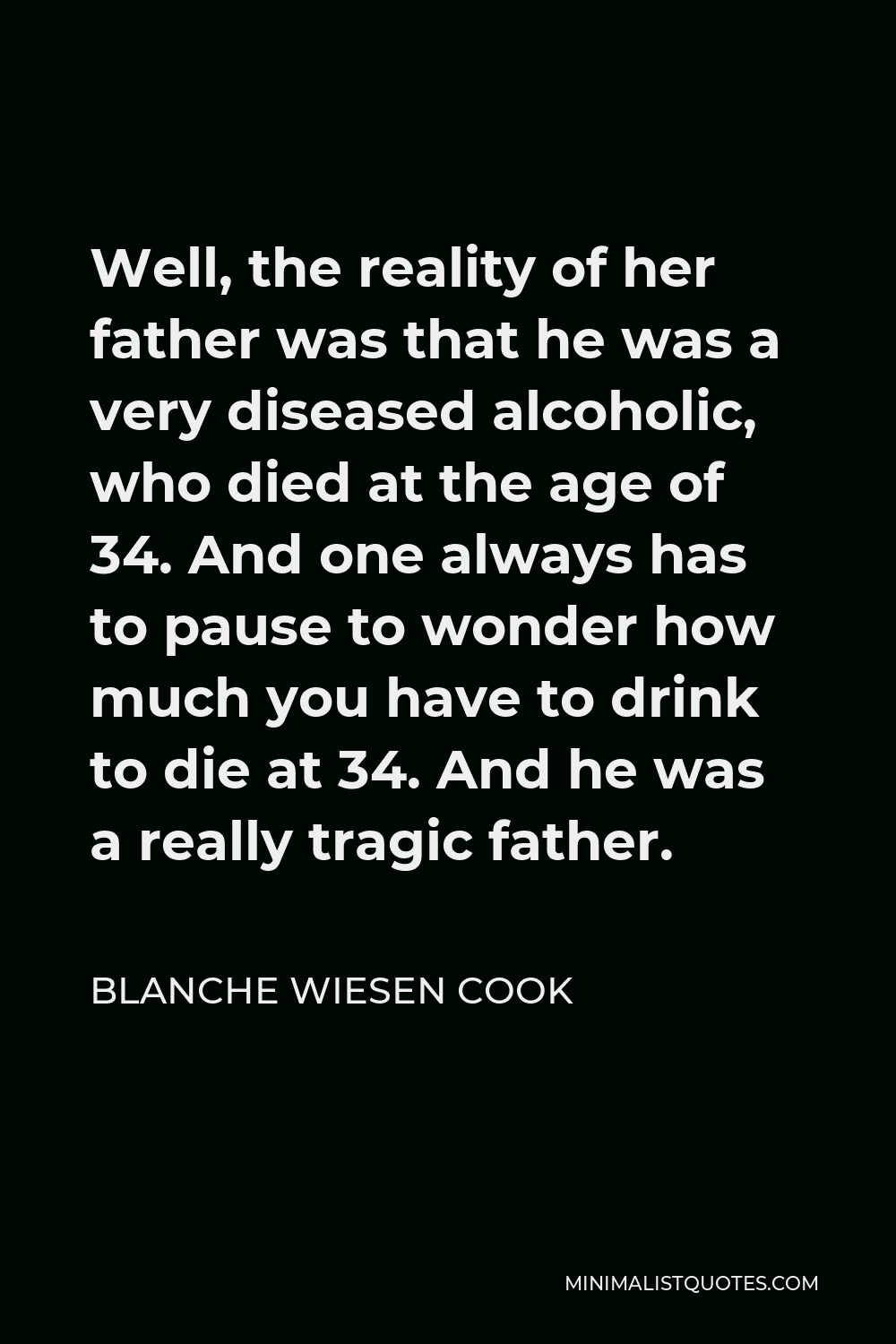
Well, the reality of her father was that he was a very diseased alcoholic, who died at the age of 34. And one always has to pause to wonder how much you have to drink to die at 34. And he was a really tragic father.
BLANCHE WIESEN COOK -





![Blanche Wiesen Cook Quote - But it’s also the beginning of another level of liberation for her]Eleanor Roosevelt], because when she returns to New York, she gets very involved in a new level of politics.](https://minimalistquotes.com/images/but-its-also-the-beginning-of-another-level-of-lib.jpg)
But it’s also the beginning of another level of liberation for her]Eleanor Roosevelt], because when she returns to New York, she gets very involved in a new level of politics.
BLANCHE WIESEN COOK -







I think that Hick was in love with Eleanor, and Eleanor was in love with Hick. I think it’s very important to look at the letters that are in my book, because unlike some of the recent published letters.
BLANCHE WIESEN COOK -





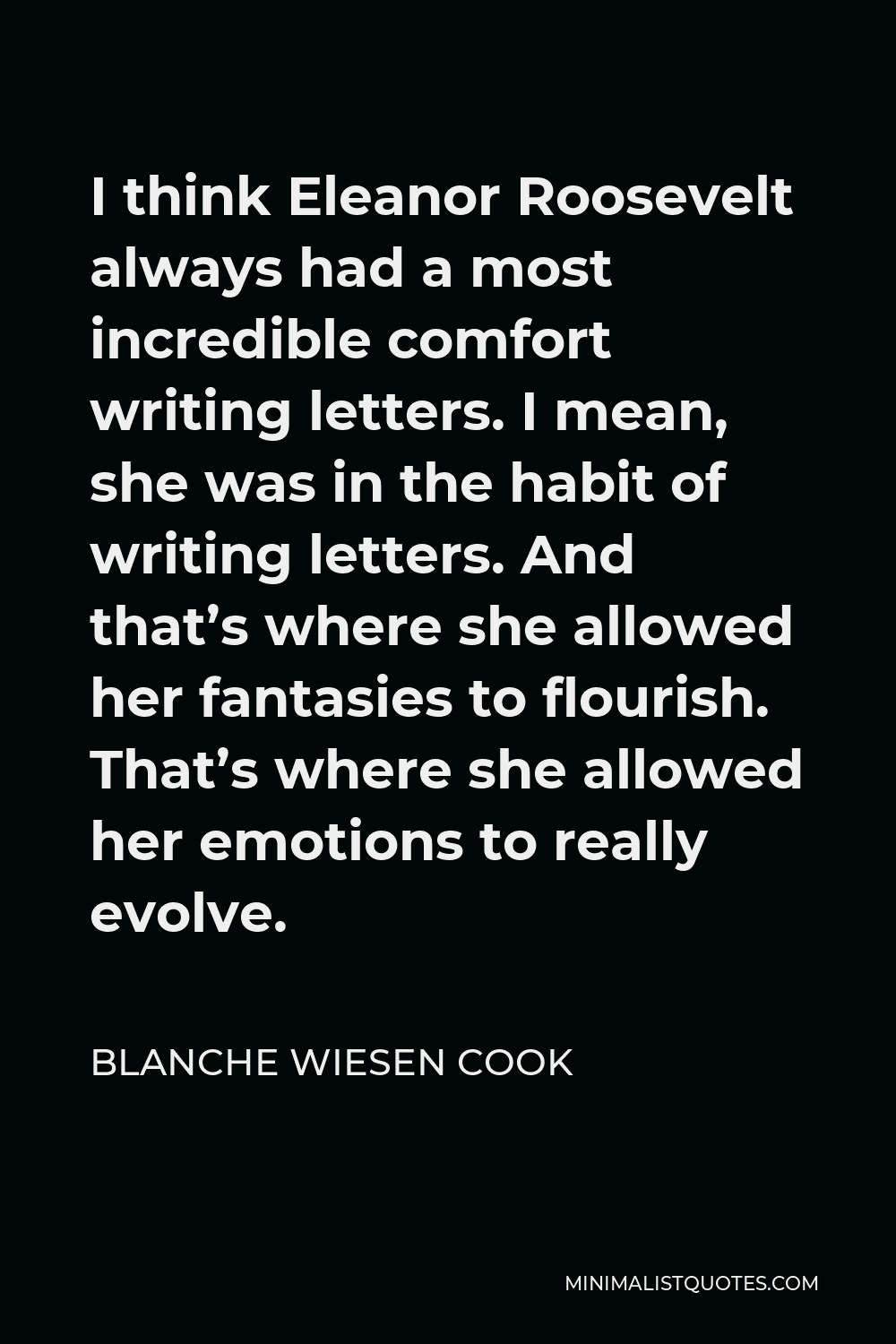
I think Eleanor Roosevelt always had a most incredible comfort writing letters. I mean, she was in the habit of writing letters. And that’s where she allowed her fantasies to flourish. That’s where she allowed her emotions to really evolve.
BLANCHE WIESEN COOK -





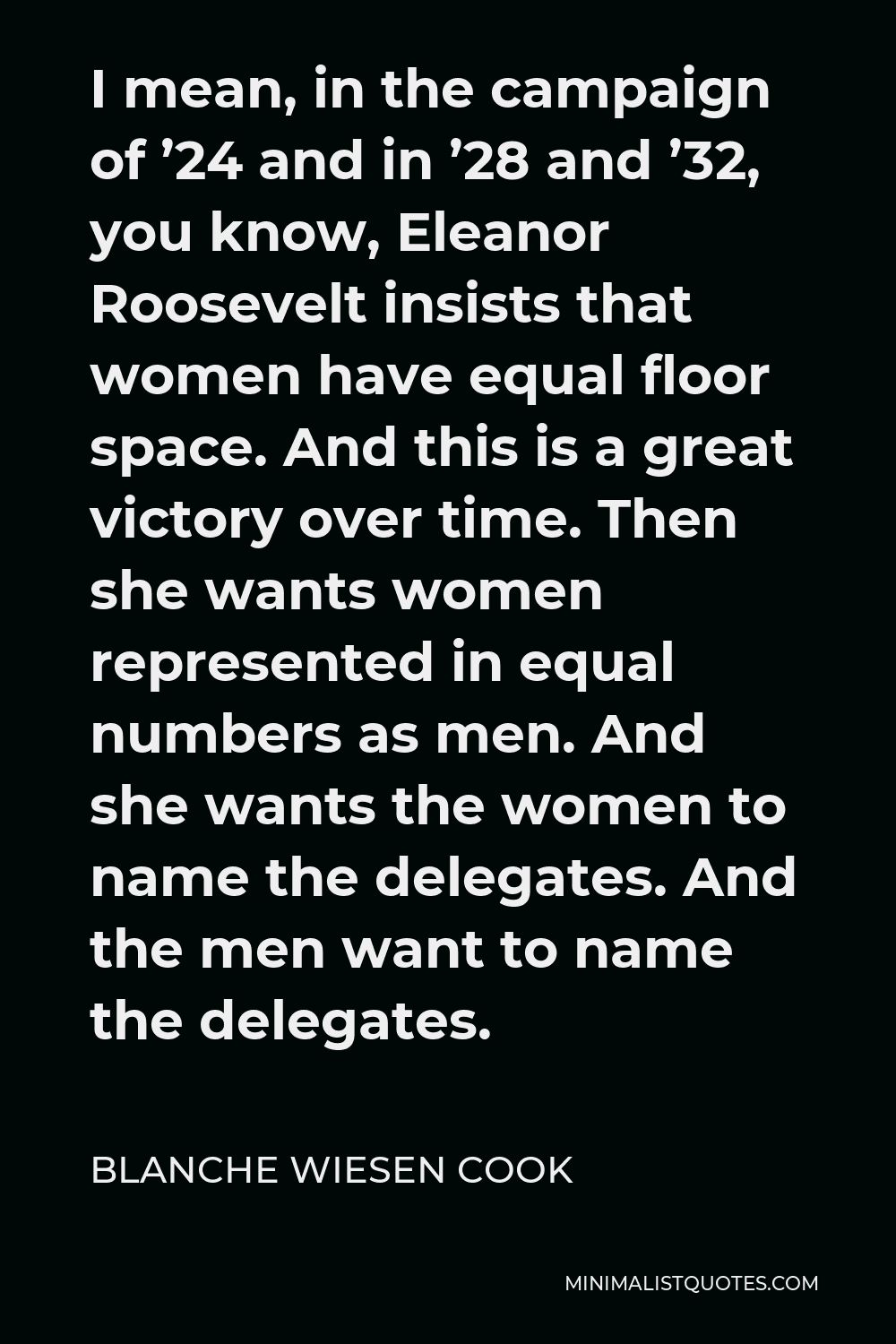
I mean, in the campaign of ’24 and in ’28 and ’32, you know, Eleanor Roosevelt insists that women have equal floor space. And this is a great victory over time. Then she wants women represented in equal numbers as men. And she wants the women to name the delegates. And the men want to name the delegates.
BLANCHE WIESEN COOK -





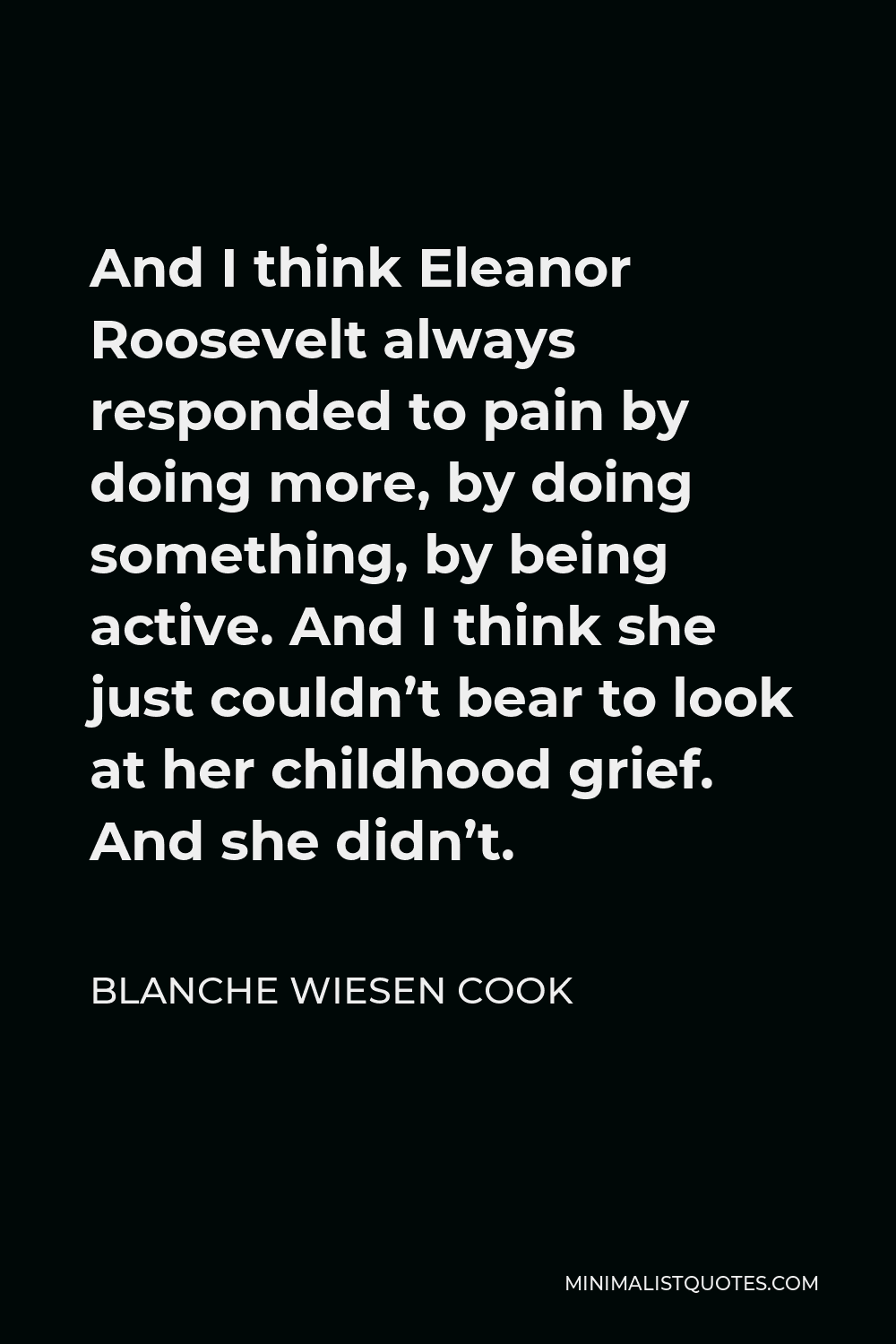
And I think Eleanor Roosevelt always responded to pain by doing more, by doing something, by being active. And I think she just couldn’t bear to look at her childhood grief. And she didn’t.
BLANCHE WIESEN COOK -





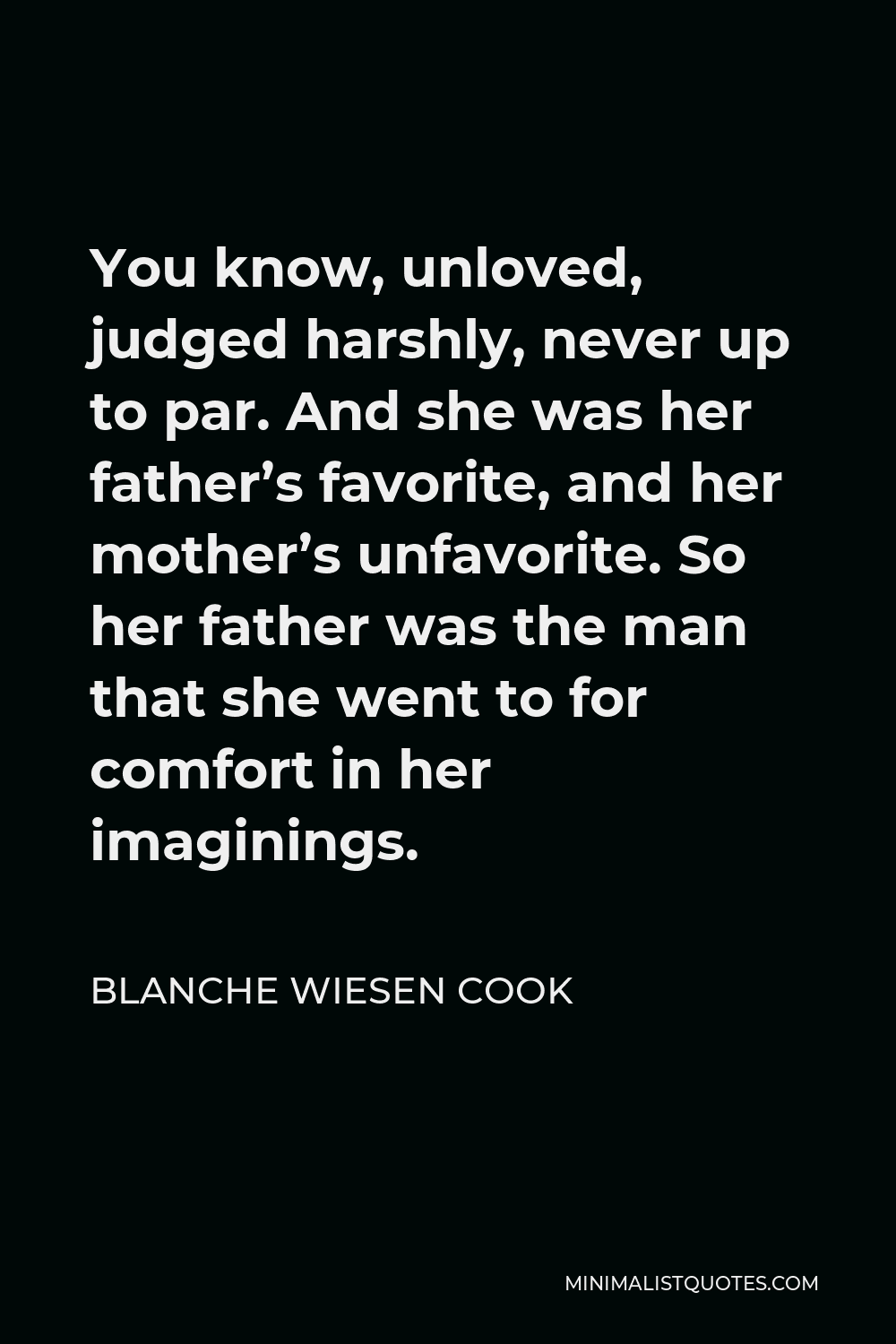
You know, unloved, judged harshly, never up to par. And she was her father’s favorite, and her mother’s unfavorite. So her father was the man that she went to for comfort in her imaginings.
BLANCHE WIESEN COOK -





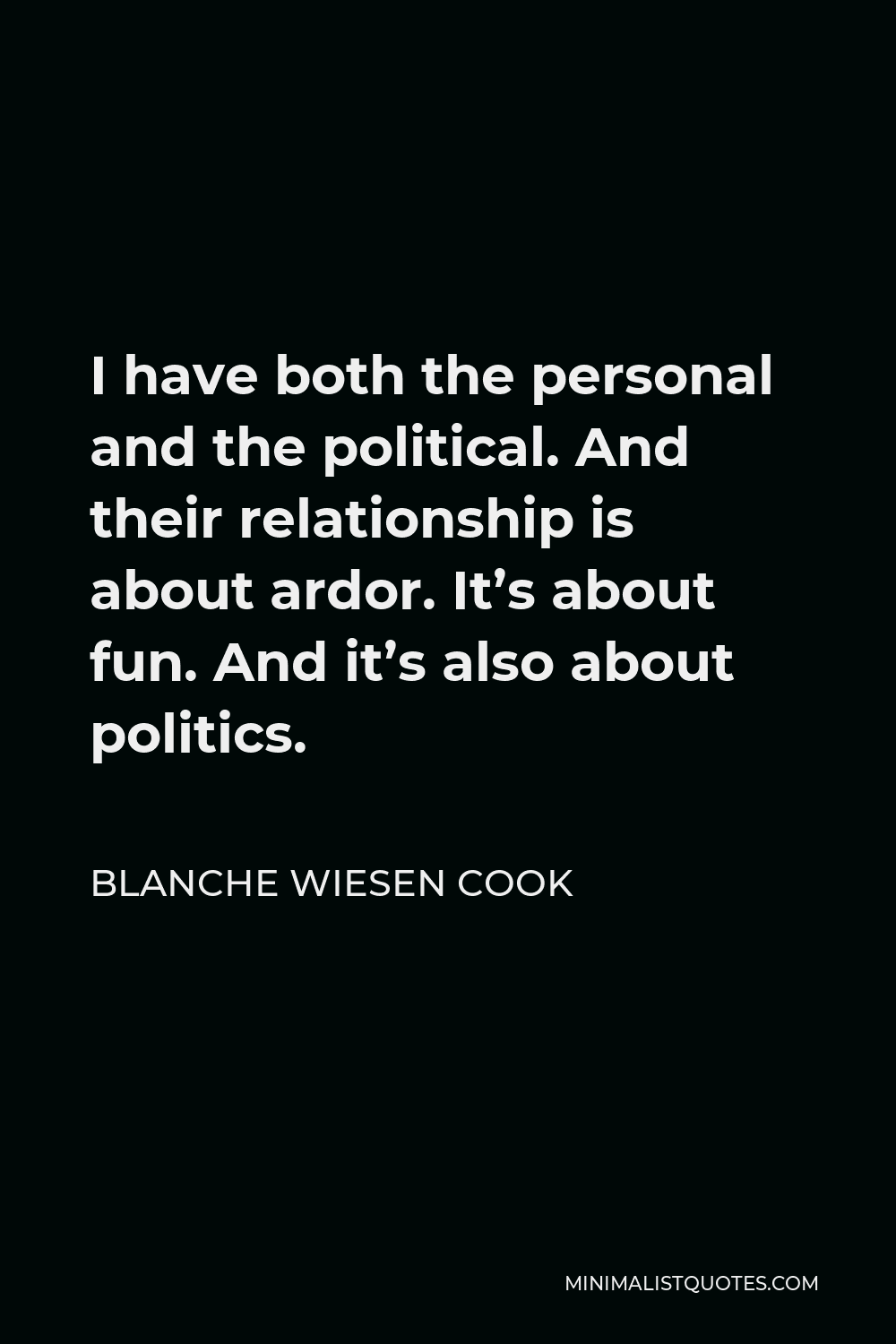
I have both the personal and the political. And their relationship is about ardor. It’s about fun. And it’s also about politics.
BLANCHE WIESEN COOK -





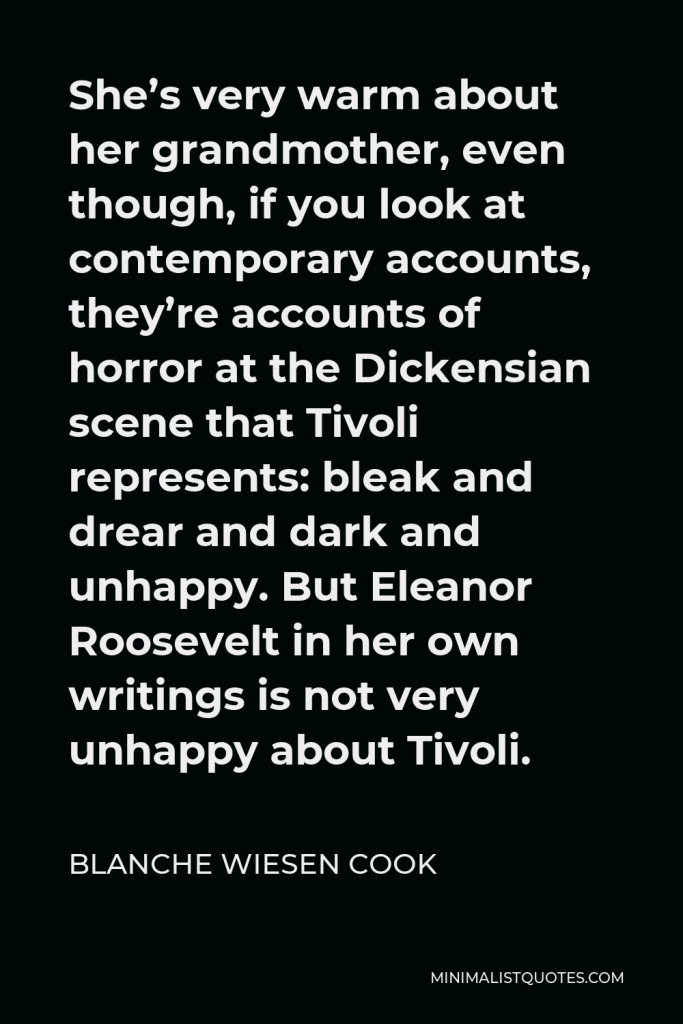

She’s very warm about her grandmother, even though, if you look at contemporary accounts, they’re accounts of horror at the Dickensian scene that Tivoli represents: bleak and drear and dark and unhappy. But Eleanor Roosevelt in her own writings is not very unhappy about Tivoli.
BLANCHE WIESEN COOK -





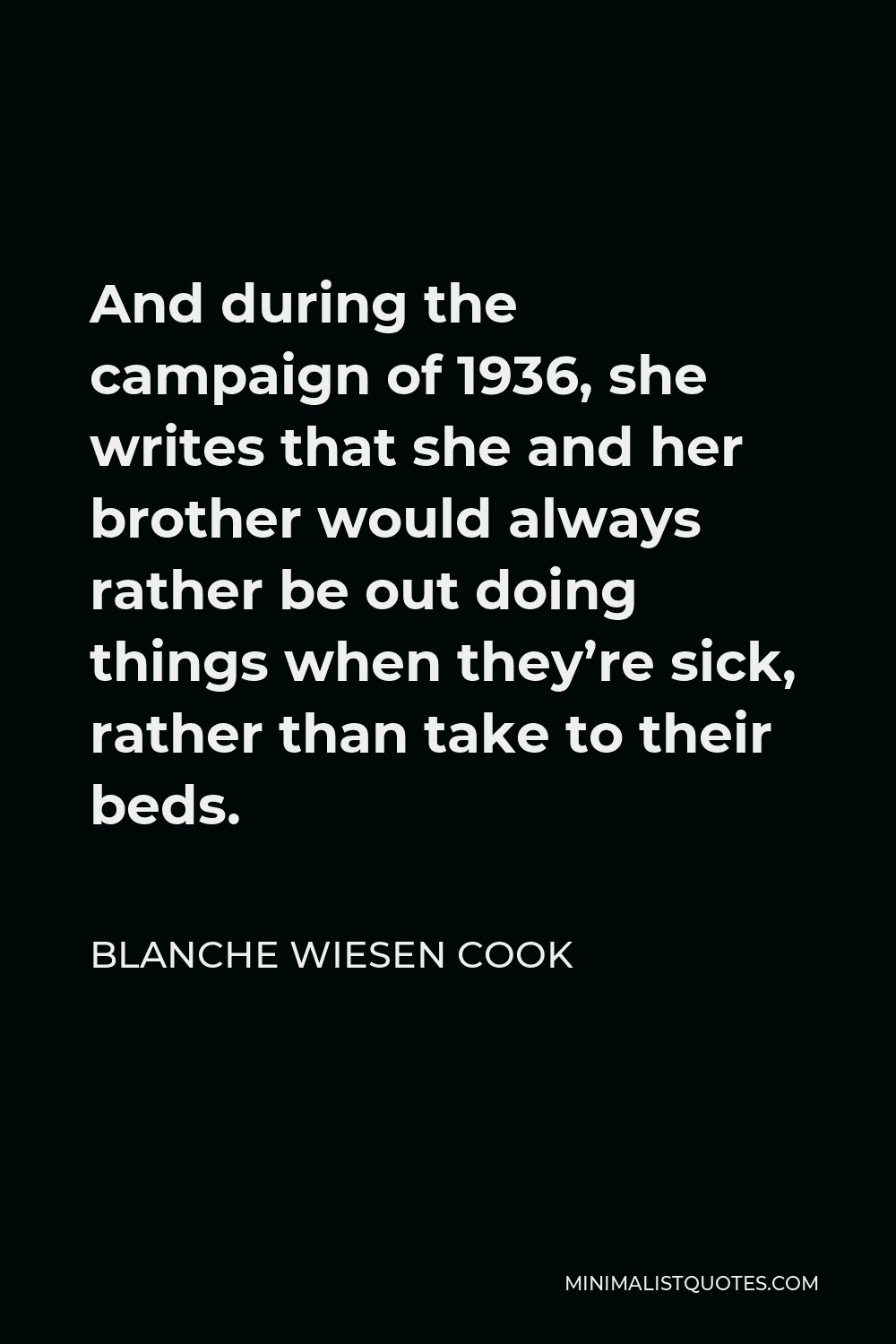
And during the campaign of 1936, she writes that she and her brother would always rather be out doing things when they’re sick, rather than take to their beds.
BLANCHE WIESEN COOK -





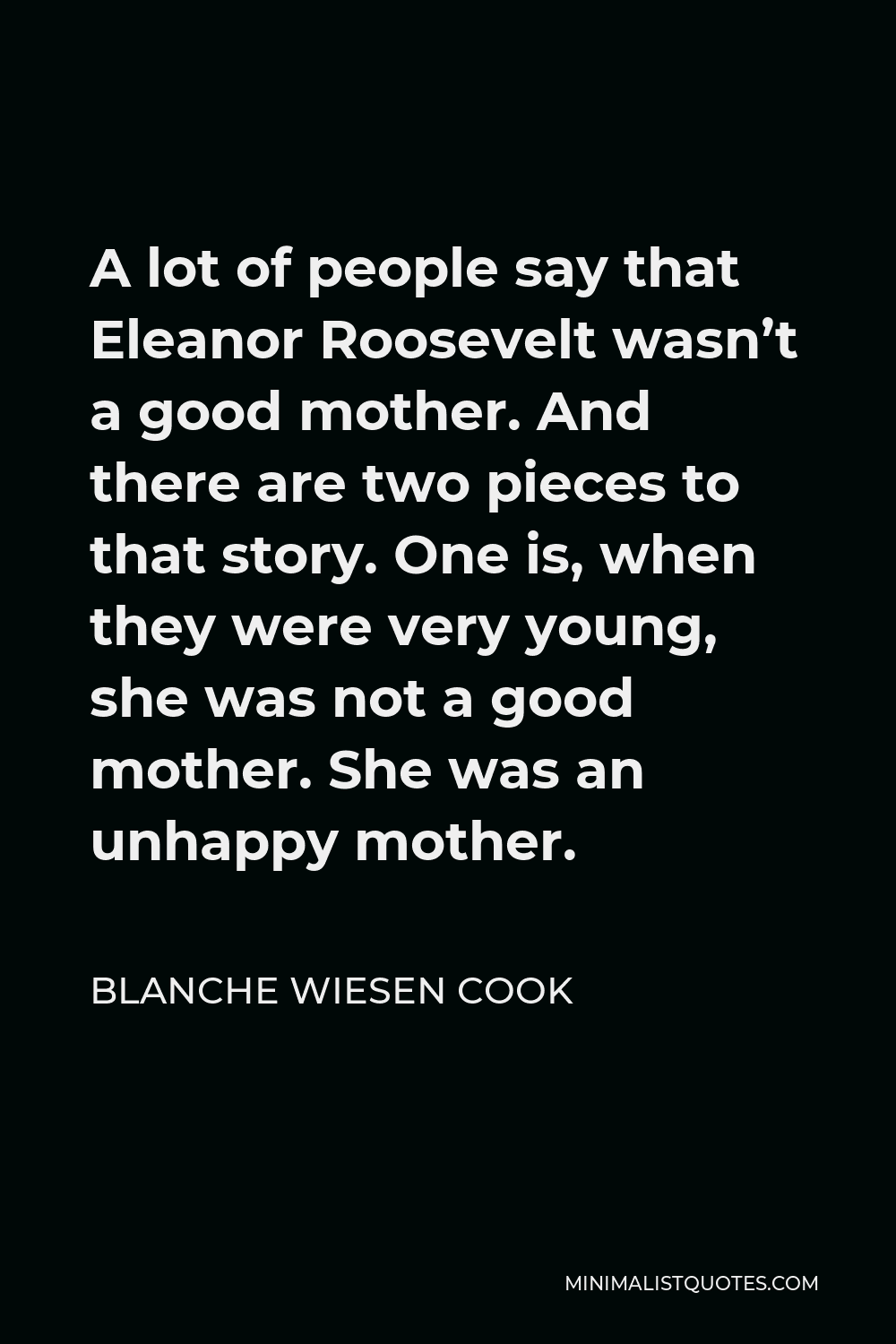
A lot of people say that Eleanor Roosevelt wasn’t a good mother. And there are two pieces to that story. One is, when they were very young, she was not a good mother. She was an unhappy mother.
BLANCHE WIESEN COOK
